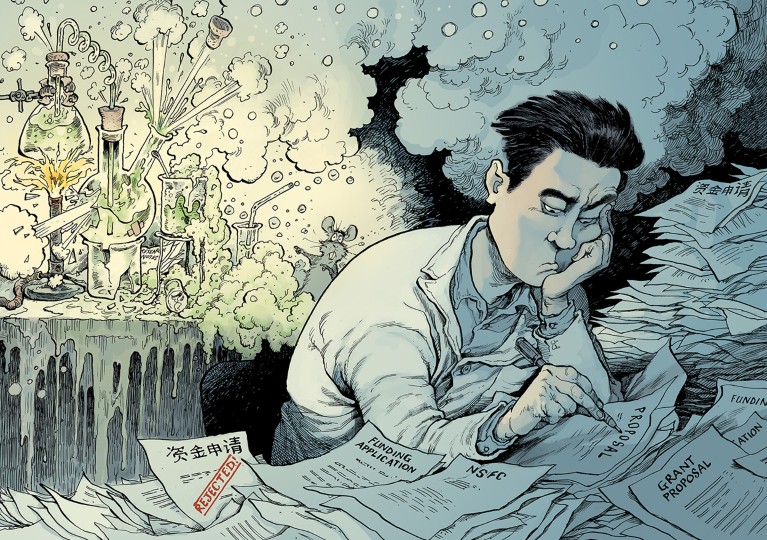
"Dear Nature, I am a young faculty member at a university in China, passionate about my research and eager to contribute to my field. However, I'm increasingly overwhelmed by the pressure to secure grants from the National Natural Science Foundation of China (NSFC). In our academic evaluation system, success in obtaining NSFC funding has become a crucial metric for career advancement - affecting promotions, tenure and even annual performance assessments."
"Young scholars spend many hours crafting grant proposals, often at the expense of actual research, such as conducting experiments, analysing data and writing papers. The stress is immense: the fear of repeated rejection not only threatens our career prospects but also erodes our confidence and enthusiasm for science. How can I navigate this pressure? Should I prioritize grant-writing skills over research itself, or is there a way to reconcile the need for funding with my original passion for scientific inquiry? - A frustrated young academic"
"But the competition for funding seems to be particularly fierce in China. A grant from the National Natural Science Foundation of China (NSFC) - the main funding source for basic research in the country - is often expected in the Chinese system for a tenure position. However, owing to the growing number of applicants, the success rate has dropped rapidly over the past decade: from around 22% in 2016 to a little over 12% this year."
Young faculty at universities in China face intense pressure to secure grants from the National Natural Science Foundation of China (NSFC), which has become a crucial metric for promotions, tenure and annual performance assessments. Many early-career researchers spend large amounts of time writing grant proposals instead of conducting experiments, analysing data and writing papers. Repeated rejection produces severe stress, undermines career prospects, confidence and scientific enthusiasm. Competition for NSFC funding is particularly fierce, and a grant is often expected for a tenure appointment. The NSFC success rate has fallen from around 22% in 2016 to just over 12% this year. Six-year 'up or out' contracts add further urgency. Four China-based researchers described coping approaches.
Read at Nature
Unable to calculate read time
Collection
[
|
...
]